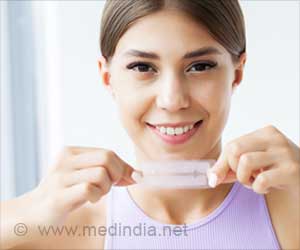- Hydrogen peroxide - (https://en.wikipedia.org/wiki/Hydrogen_peroxide)
- Should You Use Hydrogen Peroxide to Clean a Wound? - (https://healthcare.utah.edu/the-scope/health-library/all/2023/04/should-you-use-hydrogen-peroxide-clean-wound)
- Dandruff - (https://www.mayoclinic.org/diseases-conditions/dandruff/symptoms-causes/syc-20353850)
- Top 10 BEST USES of Hydrogen Peroxide - (https://www.safesol.co.uk/top-10-best-uses-of-hydrogen-peroxide/)
- Contact Lenses: Safe Use of Hydrogen Peroxide Solution - (https://www.fda.gov/consumers/consumer-updates/contact-lenses-safe-use-hydrogen-peroxide-solution)
FAQs on Top 10 Everyday Uses, Benefits, and Precautions of Hydrogen Peroxide
1. Does hydrogen peroxide have an expiration date?Yes, hydrogen peroxide does have an expiration date. Over time, it naturally decomposes into water and oxygen, which reduces its effectiveness as a disinfectant. Typically, hydrogen peroxide has a shelf life of about 1-3 years, depending on the concentration and storage conditions. To prolong its potency, store it in a cool, dark place, as exposure to light and heat can accelerate the decomposition process(3✔ ✔Trusted Source
Hydrogen peroxide
Go to source).
2. Can I use hydrogen peroxide to disinfect fruits and vegetables?
Yes, you can use hydrogen peroxide to disinfect fruits and vegetables, but it should be done cautiously. A diluted 3% hydrogen peroxide solution can help remove bacteria, pesticides, and other contaminants from the surface. To do this, you can spray or soak the produce in the solution for a few minutes, then rinse thoroughly with water to remove any residue.
However, it's important to ensure the produce is properly rinsed to avoid any potential residue left behind, and always follow safe food handling guidelines.
3. Can hydrogen peroxide be used for pet wound care?
Hydrogen peroxide can be used to clean pet wounds, but it should be used with caution. While it can effectively disinfect the area by killing bacteria, it may also harm healthy tissue around the wound and slow down the healing process. It's best to use hydrogen peroxide in emergencies when other options are unavailable.
For regular pet wound care, it's better to use a mild antiseptic solution or consult your vet for a pet-friendly disinfectant. Always avoid using hydrogen peroxide on deep or large wounds and, if in doubt, seek professional veterinary advice(4✔ ✔Trusted Source
Should You Use Hydrogen Peroxide to Clean a Wound?
Go to source).
4. Can hydrogen peroxide help with dandruff?
Hydrogen peroxide may help with dandruff to some extent due to its antifungal properties, as dandruff is often caused by a yeast-like fungus called Malassezia. However, hydrogen peroxide can be harsh on the scalp if used too frequently or in high concentrations, potentially leading to dryness or irritation.
If you want to try it, dilute the hydrogen peroxide with water (usually a 3% solution mixed with an equal amount of water) and apply it to the scalp for a few minutes before rinsing thoroughly. But it's generally safer to use dandruff shampoos formulated with antifungal ingredients like ketoconazole, selenium sulfide, or zinc pyrithione. If dandruff persists, consulting a dermatologist is recommended(5✔ ✔Trusted Source
Dandruff
Go to source).
5. Can I use hydrogen peroxide to remove stains from fabrics?
Yes, hydrogen peroxide can be used to remove stains from white fabrics due to its bleaching properties. However, it may bleach colored fabrics, so it's essential to test it on a small, inconspicuous area first(6✔ ✔Trusted Source
Top 10 BEST USES of Hydrogen Peroxide
Go to source).
6. Can I use hydrogen peroxide to clean my contact lenses?
No, hydrogen peroxide should not be used directly to clean contact lenses. It must be neutralized with a special case or solution designed for the purpose. Always follow the care instructions for your contact lenses(7✔ ✔Trusted Source
Contact Lenses: Safe Use of Hydrogen Peroxide Solution
Go to source).










